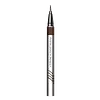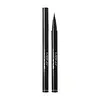What's inside
What's inside
 Key Ingredients
Key Ingredients

No key ingredients
 Benefits
Benefits

 Concerns
Concerns

 Ingredients Side-by-side
Ingredients Side-by-side

Water
Skin ConditioningEthylhexyl Acrylate/Methyl Methacrylate Copolymer
Butylene Glycol
HumectantGlycerin
HumectantSodium Polyaspartate
HumectantBeheneth-30
CleansingAmmonium Acrylates/Methylstyrene/Styrene Copolymer
Phenoxyethanol
PreservativePentylene Glycol
Skin ConditioningAlcohol Denat.
AntimicrobialCeteth-20
Cleansing1,2-Hexanediol
Skin ConditioningCaprylyl Glycol
EmollientEthylhexylglycerin
Skin ConditioningAcrylates/Octylacrylamide Copolymer
Disodium EDTA
Polyglyceryl-3 Disiloxane Dimethicone
Skin ConditioningSodium Hydroxide
BufferingMyristoyl Pentapeptide-17
Skin ConditioningBenzoic Acid
MaskingSodium Benzoate
MaskingCI 77266
Cosmetic ColorantIron Oxides
Water, Ethylhexyl Acrylate/Methyl Methacrylate Copolymer, Butylene Glycol, Glycerin, Sodium Polyaspartate, Beheneth-30, Ammonium Acrylates/Methylstyrene/Styrene Copolymer, Phenoxyethanol, Pentylene Glycol, Alcohol Denat., Ceteth-20, 1,2-Hexanediol, Caprylyl Glycol, Ethylhexylglycerin, Acrylates/Octylacrylamide Copolymer, Disodium EDTA, Polyglyceryl-3 Disiloxane Dimethicone, Sodium Hydroxide, Myristoyl Pentapeptide-17, Benzoic Acid, Sodium Benzoate, CI 77266, Iron Oxides
Water
Skin ConditioningEthylhexyl Acrylate/Methyl Methacrylate Copolymer
Butylene Glycol
Humectant1,2-Hexanediol
Skin ConditioningAlcohol Denat.
AntimicrobialAmmonium Acrylate
Acrylates/Octylacrylamide Copolymer
Phenoxyethanol
PreservativeBeheneth-30
CleansingDisodium EDTA
CI 77266
Cosmetic ColorantPolyglyceryl-3 Disiloxane Dimethicone
Skin ConditioningAminomethyl Propanol
BufferingEthylhexylglycerin
Skin ConditioningPentylene Glycol
Skin ConditioningSodium Benzoate
MaskingCaprylyl Glycol
EmollientMethylparaben
PreservativePropylparaben
PreservativeCI 77499
Cosmetic ColorantFerric Chloride
AstringentSodium Polyaspartate
HumectantTriethanolamine
BufferingSodium Hydroxide
BufferingWater, Ethylhexyl Acrylate/Methyl Methacrylate Copolymer, Butylene Glycol, 1,2-Hexanediol, Alcohol Denat., Ammonium Acrylate, Acrylates/Octylacrylamide Copolymer, Phenoxyethanol, Beheneth-30, Disodium EDTA, CI 77266, Polyglyceryl-3 Disiloxane Dimethicone, Aminomethyl Propanol, Ethylhexylglycerin, Pentylene Glycol, Sodium Benzoate, Caprylyl Glycol, Methylparaben, Propylparaben, CI 77499, Ferric Chloride, Sodium Polyaspartate, Triethanolamine, Sodium Hydroxide
 Reviews
Reviews

Ingredients Explained
These ingredients are found in both products.
Ingredients higher up in an ingredient list are typically present in a larger amount.
1,2-Hexanediol is a synthetic liquid and another multi-functional powerhouse.
It is a:
- Humectant, drawing moisture into the skin
- Emollient, helping to soften skin
- Solvent, dispersing and stabilizing formulas
- Preservative booster, enhancing the antimicrobial activity of other preservatives
We don't have a description for Acrylates/Octylacrylamide Copolymer yet.
Alcohol Denat. is an alcohol with a denaturant property. It is created by mixing ethanol with other additives.
This ingredient gets a bad rep because it is irritating and drying - mostly due to its astringent property. Astringents draw out natural oils in tissue, constricting pores and leaving your skin dried out.
However, alcohol denat. is not all that bad.
Due to its low molecular weight, alcohol denat. tends to evaporate quickly. One study on pig skin found half of applied alcohol evaporated in 10 seconds and less than 3% stayed on skin.
This also helps other ingredients become better absorbed upon application.
Studies are conflicted about whether this ingredient causes skin dehydration. One study from 2005 found adding emollients to propanol-based sanitizer decreased skin dryness and irritation. Another study found irritation only occurs if your skin is already damaged.
Small amounts of alcohol are generally tolerated by oily skin or people who live in humid environments.
The rule of thumb is if this alcohol is near the end of an ingredients list, it will probably not affect your skin much.
Also...
This ingredient has antimicrobial and solvent properties.
The antimicrobial property helps preserve products and increase their shelf life. As a solvent, it helps dissolve other ingredients.
Other types of astringent alcohols include:
Learn more about Alcohol Denat.We don't have a description for Beheneth-30 yet.
Butylene Glycol (or BG) is used within cosmetic products for a few different reasons:
Overall, Butylene Glycol is a safe and well-rounded ingredient that works well with other ingredients.
Though this ingredient works well with most skin types, some people with sensitive skin may experience a reaction such as allergic rashes, closed comedones, or itchiness.
Learn more about Butylene GlycolCaprylyl Glycol is a humectant and emollient, meaning it attracts and preserves moisture.
It is a common ingredient in many products, especially those designed to hydrate skin. The primary benefits are retaining moisture, skin softening, and promoting a healthy skin barrier.
Though Caprylyl Glycol is an alcohol derived from fatty acids, it is not the kind that can dry out skin.
This ingredient is also used as a preservative to extend the life of products. It has slight antimicrobial properties.
Learn more about Caprylyl GlycolDisodium EDTA plays a role in making products more stable by aiding other preservatives.
It is a chelating agent, meaning it neutralizes metal ions that may be found in a product.
Disodium EDTA is a salt of edetic acid and is found to be safe in cosmetic ingredients.
Learn more about Disodium EDTAWe don't have a description for Ethylhexyl Acrylate/Methyl Methacrylate Copolymer yet.
Ethylhexylglycerin (we can't pronounce this either) is commonly used as a preservative and skin softener. It is derived from glyceryl.
You might see Ethylhexylglycerin often paired with other preservatives such as phenoxyethanol. Ethylhexylglycerin has been found to increase the effectiveness of these other preservatives.
Pentylene glycol is typically used within a product to thicken it. It also adds a smooth, soft, and moisturizing feel to the product. It is naturally found in plants such as sugar beets.
The hydrophilic trait of Pentylene Glycol makes it a humectant. As a humectant, Pentylene Glycol helps draw moisture from the air to your skin. This can help keep your skin hydrated.
This property also makes Pentylene Glycol a great texture enhancer. It can also help thicken or stabilize a product.
Pentylene Glycol also acts as a mild preservative and helps to keep a product microbe-free.
Some people may experience mild eye and skin irritation from Pentylene Glycol. We always recommend speaking with a professional about using this ingredient in your routine.
Pentylene Glycol has a low molecular weight and is part of the 1,2-glycol family.
Learn more about Pentylene GlycolPhenoxyethanol is a preservative that has germicide, antimicrobial, and aromatic properties. Studies show that phenoxyethanol can prevent microbial growth. By itself, it has a scent that is similar to that of a rose.
It's often used in formulations along with Caprylyl Glycol to preserve the shelf life of products.
Polyglyceryl-3 Disiloxane Dimethicone is a type of silicone.
Sodium Benzoate is a preservative. It's used in both cosmetic and food products to inhibit the growth of mold and bacteria. It is typically produced synthetically.
Both the US FDA and EU Health Committee have approved the use of sodium benzoate. In the US, levels of 0.1% (of the total product) are allowed.
Sodium benzoate works as a preservative by inhibiting the growth of bacteria inside of cells. It prevents the cell from fermenting a type of sugar using an enzyme called phosphofructokinase.
It is the salt of benzoic acid. Foods containing sodium benzoate include soda, salad dressings, condiments, fruit juices, wines, and snack foods.
Studies for using ascorbic acid and sodium benzoate in cosmetics are lacking, especially in skincare routines with multiple steps.
We always recommend speaking with a professional, such as a dermatologist, if you have any concerns.
Learn more about Sodium BenzoateSodium Hydroxide is also known as lye or caustic soda. It is used to adjust the pH of products; many ingredients require a specific pH to be effective.
In small amounts, sodium hydroxide is considered safe to use. However, large amounts may cause chemical burns due to its high alkaline.
Your skin has a natural pH and acid mantle. This acid mantle helps prevent harmful bacteria from breaking through. The acid mantle also helps keep your skin hydrated.
"Alkaline" refers to a high pH level. A low pH level would be considered acidic.
Learn more about Sodium HydroxideWe don't have a description for Sodium Polyaspartate yet.
Water. It's the most common cosmetic ingredient of all. You'll usually see it at the top of ingredient lists, meaning that it makes up the largest part of the product.
So why is it so popular? Water most often acts as a solvent - this means that it helps dissolve other ingredients into the formulation.
You'll also recognize water as that liquid we all need to stay alive. If you see this, drink a glass of water. Stay hydrated!
Learn more about WaterCI 77266 is a high-purity pigment used to create an intense black color in cosmetics. It is made up of fine particles of pure carbon. This ingredient is also often listed as Carbon Black in ingredient lists.
You'll likely find this ingredient in mascaras, eyeliners, brow products, and eye shadow.
In the US, this ingredient can only be used if it meets strict FDA specifications. Certain versions even require batch-by-batch certification after extensive safety evaluation.
In the European Union, this ingredient is permitted as a colorant and classified as a "nanomaterial" based on its particle size (meaning it requires deeper assessment).
The EU Scientific Committee on Consumer Safety (SCCS) has reviewed nano-sized carbon black specifically and concluded that it does not pose a risk to human health when used in cosmetic products applied to healthy, intact skin and formulated to avoid inhalation.
Studies support this regulatory stance. Laboratory studies on nano-carbon black show potential for cytotoxicity and inflammatory effects in immune cells; it is important to highlight these findings are based on in vitro (not done on a living organism) testing or inhalation scenarios rather than normal topical cosmetic use.
Occupational studies involving industrial workers exposed to airborne carbon black have not shown a clear link between cumulative exposure and cancer risk. These findings are not directly applicable to cosmetics; cosmetic formulations bind pigments within creams, gels, and liquids that are not inhaled.
Overall, evidence shows that this ingredient is safe under regulatory guidelines and purity standards, especially when formulated to avoid airborne exposure.
Even with regulatory approval and a long history of use, some consumers might prefer to avoid ingredients that are petroleum-derived or that fall under the “nanomaterial” category.
Choosing whether to use CI 77266 isn’t necessarily about safety alone; it can also be about personal philosophy, comfort level with synthetic versus natural ingredients, and how much weight you place on ongoing research and regulatory oversight.
Makeup is highly individual, and personal preference plays an important role in deciding what feels right for you.
Learn more about CI 77266